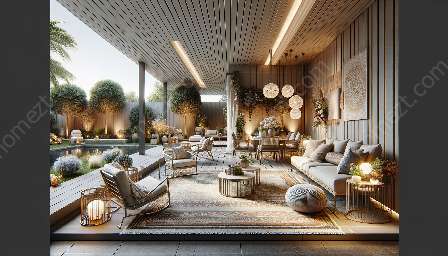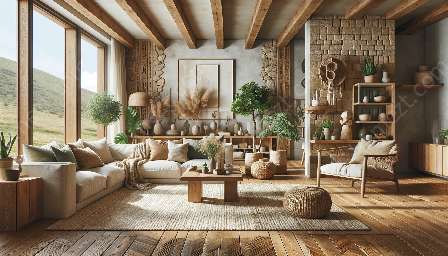When it comes to decorating with natural materials, it's important to consider the environmental implications of your choices. In this comprehensive guide, we'll explore the impact of using natural materials in home decor and provide tips for incorporating sustainable and eco-friendly materials into your decorating style.
Understanding the Environmental Impact
Natural materials such as wood, stone, bamboo, and jute have gained popularity in home decor due to their organic and timeless appeal. However, the extraction, production, and transportation of these materials can have significant environmental consequences. Deforestation, habitat destruction, and carbon emissions are some of the negative effects associated with the use of natural materials.
To mitigate these implications, it's essential to opt for responsibly sourced and certified sustainable materials. Look for products that are certified by organizations such as the Forest Stewardship Council (FSC) or the Rainforest Alliance, as they ensure that the materials come from responsibly managed forests and contribute to the preservation of ecosystems and wildlife.
Benefits of Decorating with Natural Materials
Despite the potential environmental implications, decorating with natural materials offers numerous benefits. From enhancing indoor air quality to creating a harmonious and comforting ambiance, natural materials can contribute to a healthier and more sustainable living environment. Additionally, natural materials often have a longer lifespan and can be biodegradable, reducing the environmental impact in the long run.
When selecting natural materials for home decor, consider incorporating items such as reclaimed wood furniture, organic cotton textiles, and eco-friendly paints and finishes. These choices contribute to a more sustainable and environmentally friendly living space.
Incorporating Sustainable Materials into Your Decor
Creating a home decor scheme that incorporates sustainable and eco-friendly materials can be an enjoyable and fulfilling process. Start by prioritizing natural and renewable materials, such as cork, hemp, and seagrass, in your decor selections. These materials not only add a unique and organic touch to your home but also have minimal environmental impact during production and disposal.
Furthermore, consider upcycling and repurposing materials to give them a new life in your decor. From turning reclaimed wood into stylish shelves to using recycled glass for decorative accents, there are endless possibilities for incorporating sustainable materials into your home decor.
Embracing a Sustainable Lifestyle
Decorating with natural materials is just one aspect of embracing a sustainable lifestyle. Consider implementing energy-efficient lighting, adopting minimalist decor principles, and supporting local artisans and eco-conscious brands to further reduce your environmental footprint. By making mindful choices and prioritizing sustainability in your decorating decisions, you can create a home that aligns with your values and contributes to a healthier planet.
Conclusion
In conclusion, the environmental implications of using natural materials in home decor are significant, but with careful consideration and conscious choices, it's possible to minimize the negative impact and create a sustainable and aesthetically pleasing living space. By understanding the environmental impact, embracing responsible sourcing, and incorporating sustainable materials into your decor, you can contribute to a greener and more eco-friendly home environment.






































